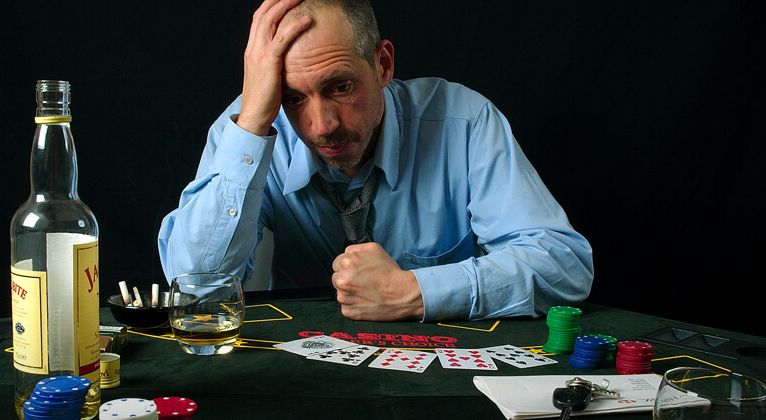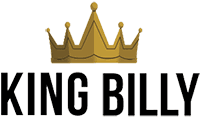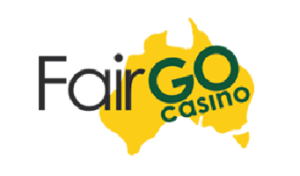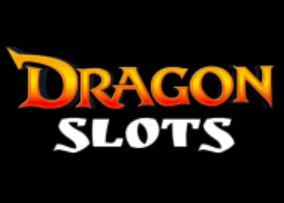
Introduction
Gambling is deeply woven into the social and economic fabric of Australia and New Zealand. From pokies in local pubs to online casinos and sports betting, the region has one of the highest gambling participation rates globally. However, this widespread engagement comes with a significant downside: gambling addiction. This review provides a comprehensive, analysis of gambling addiction in Australia and New Zealand, exploring its causes, prevalence, impacts, and the latest approaches to prevention and treatment.
What Is Gambling Addiction?
Gambling addiction, also known as gambling disorder or problem gambling, is a recognized psychiatric condition characterized by an uncontrollable urge to gamble despite harmful consequences. It is classified in the DSM-5 and shares many features with substance addictions, including changes in brain chemistry and behavior patterns.
Key Features
-
Compulsive gambling behavior
-
Inability to stop or control gambling
-
Chasing losses
-
Neglect of personal, financial, or professional responsibilities
-
Withdrawal symptoms when not gambling
Prevalence and Statistics
Australia
-
Participation: About 73% of Australian adults gambled at least once in the past year.
-
Problem Gambling: Approximately 0.5–1% of adults (80,000–160,000 people) have a serious gambling problem, with a further 1.4–2.1% (250,000–350,000) affected by gambling addiction.
-
Losses: Australians lose around $25 billion annually to gambling, the highest per capita loss rate in the world.
-
Most Harmful Forms: Pokies (electronic gaming machines) account for over half of gambling-related harm, followed by casino games and sports betting.
New Zealand
-
Participation: 64.1% of adults (about 2.76 million people) gambled in the past 12 months.
-
Problem Gambling: The combined rate of moderate-risk and problem gambling is 2.4% of the adult population, equating to approximately 104,000 adults.
-
Harm: One in five New Zealanders (22%) are affected at some point in their lives by their own or someone else’s gambling.
-
Losses: In 2023/24, New Zealanders lost more than $2.79 billion gambling, with expenditure rising despite a reduction in the number of pokies.
Causes and Risk Factors
Biological and Psychological Factors
-
Brain Chemistry: Gambling activates the brain’s reward system, releasing dopamine and creating a “high” similar to that experienced with drugs or alcohol.
-
Genetics: Family history of addiction can increase susceptibility.
-
Mental Health: Co-occurring conditions such as depression, anxiety, and substance abuse are common among problem gamblers.
Social and Environmental Factors
-
Accessibility: The widespread availability of pokies and online gambling platforms increases risk, especially in areas of high deprivation.
-
Cultural Acceptance: Gambling is normalized in both countries, making it harder for individuals to recognize or admit a problem.
-
Advertising: Aggressive marketing and sponsorships, especially in sports, contribute to increased gambling participation and risk.
Demographic Risk Groups
-
Men: More likely to develop gambling problems than women.
-
Young Adults: High rates of gambling and increased vulnerability to harm, with 44.3% of New Zealanders aged 15–24 gambling in the past year.
-
Māori and Pacific Peoples: Disproportionately affected in New Zealand, with Māori 2.24 times and Pacific peoples 2.31 times more likely to be moderate- or high-risk gamblers than non-Māori and non-Pacific peoples.
-
Low-Income Communities: Higher density of gambling venues and greater exposure to harm.
Impacts of Gambling Addiction
Personal and Family Consequences
-
Financial Ruin: Loss of savings, mounting debts, and bankruptcy are common outcomes.
-
Relationship Breakdown: Gambling addiction often leads to conflict, separation, and domestic violence.
-
Mental Health: Increased rates of depression, anxiety, and suicide risk among problem gamblers.
-
Physical Health: Stress-related illnesses and neglect of self-care.
Societal and Economic Costs
-
Productivity Loss: Absenteeism and reduced work performance.
-
Crime: Theft, fraud, and other criminal activities to fund gambling.
-
Healthcare Burden: Increased demand for mental health and addiction services.
-
Community Harm: Disproportionate impact on vulnerable groups and regions, with some areas experiencing gambling losses three times the national average.
The Role of Online Gambling
The rise of online gambling has transformed the landscape, making gambling more accessible than ever. In New Zealand, 31% of adults participated in online gambling in 2023/24, with 3.6% using overseas-based providers. In Australia, online gambling is growing rapidly, especially among young men and sports bettors.
Risks of Online Gambling
-
24/7 Accessibility: No physical barriers or closing times.
-
Anonymity: Easier to hide problematic behavior.
-
Unregulated Sites: Overseas operators may not adhere to local harm minimization standards.
Harm Minimization and Regulation
Australia
-
Regulatory Measures: Introduction of mandatory playing cards, spending limits, and safe gambling codes in some states.
-
Advertising Restrictions: Ongoing debate about banning gambling ads, especially during sports broadcasts.
-
Self-Exclusion: National self-exclusion register (BetStop) allows individuals to block access to all licensed online and phone gambling.
New Zealand
-
Problem Gambling Levy: Industry-funded levy supports public health and treatment services.
-
Targeted Interventions: Focus on high-risk groups, including Māori, Pacific, and Asian communities.
-
Community Programs: Public health campaigns and community-based support services.
Treatment and Support
Evidence-Based Treatments
-
Cognitive Behavioural Therapy (CBT): The gold standard for gambling addiction, focusing on changing harmful thoughts and behaviors.
-
Motivational Interviewing: Helps individuals resolve ambivalence and commit to change.
-
Financial Counselling: Assists with debt management and financial recovery.
-
Peer Support: Group therapy and support networks for ongoing recovery.
Accessing Help
Australia
-
Gambling Help Online: 24/7 free, confidential support via phone, chat, and email.
-
Statewide Gambling Therapy Service: Free therapy, including face-to-face, phone, and video sessions.
-
GambleAware and Hospital Programs: Government-funded, evidence-based treatment and support.
New Zealand
-
Gambling Helpline: 24/7 freephone support (0800 654 655) and text (8006).
-
Problem Gambling Foundation (PGF): Free, professional counselling and support for individuals and families.
-
Mapu Maia: Culturally tailored support for Pacific peoples.
-
Asian Family Services: Multilingual support for Asian communities.
-
Community Health Providers: Holistic, whānau-centered approaches for Māori and other groups.
Prevention and Public Health Strategies
Australia
-
Education Campaigns: Raising awareness of gambling risks and promoting responsible gambling.
-
Venue-Based Interventions: Staff training, signage, and mandatory breaks in gambling venues.
-
Research and Policy: Ongoing studies to inform best practices and policy reforms.
New Zealand
-
Integrated Public Health Approach: Prevention, early intervention, and treatment services funded by the gambling levy.
-
Community Engagement: Empowering communities to develop local solutions and support networks.
-
Focus on Equity: Addressing the needs of disproportionately affected groups, including Māori, Pacific, and low-income communities.
Frequently Asked Questions
Is Gambling Addiction a Disease?
Yes, gambling addiction is recognized as a behavioral addiction with similar brain changes and behavioral patterns to substance use disorders.
Can Gambling Addiction Be Cured?
While there is no “cure,” many people recover with the right support and treatment. Relapse is common, but ongoing therapy and support can lead to long-term recovery.
What Are the Signs of Gambling Addiction?
-
Preoccupation with gambling
-
Increasing amounts wagered
-
Chasing losses
-
Lying about gambling
-
Borrowing money or selling possessions to gamble
-
Neglecting responsibilities
Where Can I Get Help?
-
Australia: Gambling Help Online, Statewide Gambling Therapy Service, GambleAware, local GPs, and financial counsellors.
-
New Zealand: Gambling Helpline, PGF Services, Mapu Maia, Asian Family Services, community health providers.
Conclusion: The Path Forward
Gambling addiction remains a significant public health challenge in Australia and New Zealand. Despite high participation rates and cultural acceptance, the personal, social, and economic costs are profound. The most effective responses combine regulation, harm minimization, evidence-based treatment, and community support.
For those affected, help is available. Early intervention, tailored support, and a commitment to ongoing recovery can make a real difference. As the gambling landscape evolves, especially with the rise of online platforms, continued vigilance, research, and reform are essential to protect individuals and communities from harm.
If you or someone you know is struggling with gambling, reach out to the support services listed above. Recovery is possible, and help is always available.
References
-
National Center for Biotechnology Information: Genetics of Gambling
-
Foundation for Alcohol Research and Education: Gambling Advertising
-
Australian National University: Gambling and Socioeconomic Status
-
Australian Psychological Society: Physical Health and Gambling
-
Australian Communications and Media Authority: Online Gambling
-
Victorian Responsible Gambling Foundation: Venue Interventions
Click on the numbered references above to access the original sources for further reading and verification.


